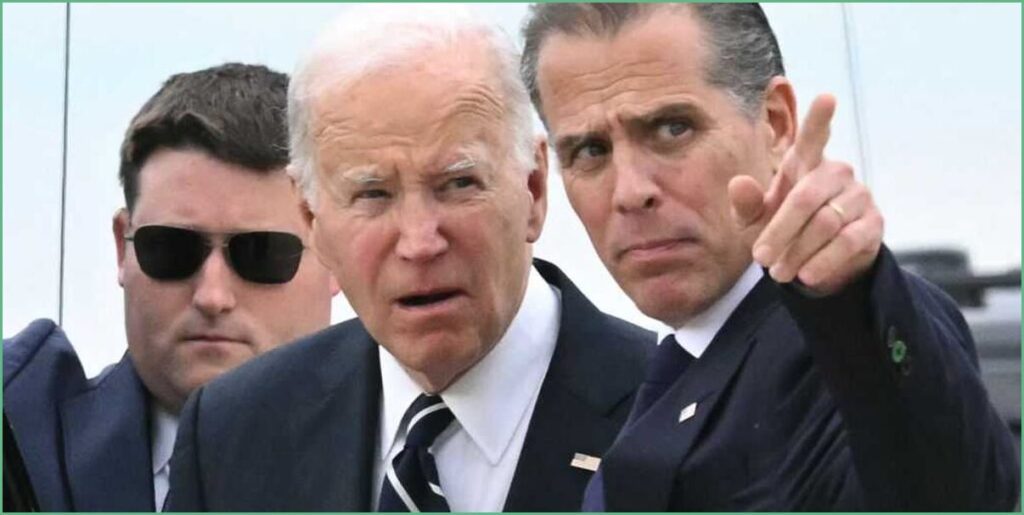The House Oversight Committee’s new report says a large swath of actions taken in President Biden’s name were signed by a machine and may be legally void, and Republican leaders want the Department of Justice to sort it out. The document frames autopen use not as a harmless convenience but as a threat to accountability, and it calls for consequences for those who steered power away from the president. This article walks through the report’s main claims, the evidence cited, the striking statistics, and the public push for investigations and prosecutions.
The Oversight Committee released a lengthy report declaring that many executive actions and pardons produced with a machine-generated signature are invalid. “Barring evidence of executive actions taken during the Biden presidency showing that President Biden indeed took a particular executive action, the Committee deems those actions taken through use of the autopen as void,” said the report. Republicans argue this is not a technicality but a constitutional problem that undermines the legitimacy of presidential power.
The report urges the Department of Justice to review every executive action from the prior administration and to determine whether legal steps are necessary to address any illegitimate pardons or directives. Committee members say the pattern suggests unelected staffers frequently exercised authority in the president’s name. That claim is bolstered by testimony and documents indicating decisions were sometimes made without contemporaneous proof that the president personally approved them.
The Oversight Project first sounded the alarm after finding what it said were machine-generated signatures across a wide array of high-impact documents. Lawmakers point to examples where signatures appeared while the president was absent or on vacation and to internal Justice Department emails that reportedly raised legal concerns about specific commutations. Republicans stress that the autopen is not itself illegal, but its use without proper oversight can mask delegation of core presidential duties.
Biden’s cognitive fitness is raised in committee materials, but the broader accusation is institutional: that a cast of aides and family members effectively ran parts of the executive branch. Staffers are accused of making decisions on behalf of the president, and there are claims that family members played outsized roles in policy or clemency discussions. Those charged with defending the administration dismiss the probe as political theater, but the committee insists the rule of law is at stake.
Broken down further by category, the indicated that of the Biden-era documents reviewed, 59.2% of the executive orders; 96.3% of the presidential proclamations; 75% of the pardons, including the pardons for Anthony Fauci, retired Gen. Mark Milley, members of the Biden clan, and former members of the House Jan. 6 select committee; and 51.8% of the commutations were signed with autopen. Those proportions, if accurate, point to widespread reliance on the device for consequential acts. Biden apparently signed all but one bill into law by hand.
“We, as a nation, operated for years without a functioning president and instead ceded executive power to a politburo of unelected bureaucrats who exercised presidential power via autopen,” the watchdog group stated. That is the blunt accusation driving the GOP push for accountability, and it fuels calls for criminal referrals and congressional oversight. Republicans want the DOJ to take those referrals seriously and to pursue charges if laws were broken.
The committee highlighted that 32 of 51 clemency warrants reviewed were signed by digital copies of the president’s signature without contemporaneous paperwork linking Biden to the decisions. Legal experts quoted by Republicans emphasize that clemency is a personal presidential act that cannot be validly delegated to aides. Former Idaho Solicitor General Theo Wold testified that the president must personally make clemency decisions, and committee members say the paper trail does not support that happened here.
The report names specific aides who were asked to testify and notes resistance from some witnesses, prompting a referral to the DOJ to investigate potential obstruction. The committee singled out White House physician Kevin O’Connor and aides Anthony Bernal and Annie Tomasini as figures the DOJ should look into. Republicans argue refusal to testify undercuts transparency and deepens the suspicion that authority was improperly exercised off the record.
Committee Chairman James Comer (R-Ky.) said in a statement, “Our report reveals how key aides colluded to mislead the public and the extraordinary measures they took to sustain the appearance of presidential authority as Biden’s capacity to function independently diminished. Executive actions performed by Biden White House staff and signed by autopen are null and void.” His words crystallize the GOP case: this is not about partisan nitpicking but about who actually ran the executive branch.
A Biden spokesperson stated, “This investigation into baseless claims has confirmed what has been clear from the start: President Biden made the decisions of his presidency.” The spokesperson added, “There was no conspiracy, no cover-up, and no wrongdoing. Congressional Republicans should stop focusing on political retribution and instead work to end the government shutdown.” President Biden has also said, “I made the decisions during my presidency. I made the decisions about the pardons, executive orders, legislation, and proclamations.” These direct denials set up a clash that will likely play out in courts and committees.
We are deeming Biden’s executive actions NULL and VOID.
🔗 Read the full report on our investigation of ‘The Biden Autopen Presidency”: https://t.co/JYSXv3oEpu
— Oversight Committee (@GOPoversight) October 28, 2025
